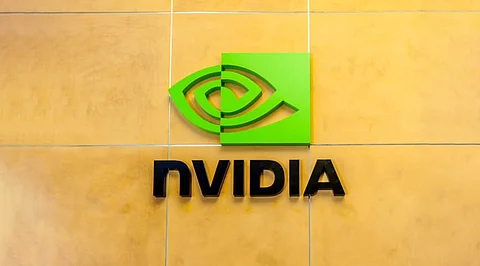

Nvidia was founded in 1993 by Jensen Huang, Chris Malachowsky, and Curtis Priem, the same year the term "millennial" was coined. Is this a "millennial" company? All signs point to yes as Nvidia was started with a belief that a PC would become a commercial device for enjoying video games and multimedia. What you have right now is the more advanced version of the chunky display device, a noisy CPU, clunky keyboard, and a ball mouse – all once called a PC, personal computer. At the time when the company started, there were several graphics chips companies, a number that soon multiplied manifold three years later.
With grit and determination, three young electrical engineers started Nvidia to make advanced specialized chips that would create faster and realistic graphics for video games. "There was no market in 1993, but we saw a wave coming," said Malachowsky to Forbes. "There's a California surfing competition that happens in a five-month window every year. When they see some type of wave phenomenon or storm in Japan, they tell all the surfers to show up in California, because there's going to be a wave in two days. That's what it was. We were at the beginning."
The wave here is the market for that time's GPUs or Graphic Processing Units. Back in those days, these chips were sold to gamers to plug into a PC's motherboard. Doing that generated ultra-fast 3D graphics which cost up to $1,200. Two decades later, these chips still constitute more than half of Nvidia's revenues.
The graphics specialist company made all the right headlines all these years. But it's not all video games and graphics that took this company to the heights that it is now. It's artificial intelligence and deep learning. Deep learning facilitates a computer to learn on its own, without the IT department having to overlook the coding aspects. This leads to accurate image and speech recognition.
Tech kings like Google, Microsoft, Facebook, and Amazon are buying Nvidia's chips for their data centers in huge quantities. These chips provide companies with the necessary horsepower for virtual reality gears that are being launched in the market. Approximately, there are 3,000 AI startups worldwide and many of those are building processes on Nvidia's platforms. They use the company's GPU in AI apps that are used for trading stocks, shopping online, and navigating drones.
Jensen Huang had an itch that the graphics chips had more potential to it than just power video games, but what he didn't expect was his shift to deep learning. There were two limitations to adopt the technology, the amount of data needed to train the algorithms and the access to greater horsepower for computing. While the internet solved the first problem of data availability, the launch of CUDA in 2006 solved the latter. The programming toolkit allowed coders to easily program individual pixels on a screen. CUDA introduced the ease of programming a high-level language like Java or C++ to GPUs.
"AI Computing is the future of computing. So, long as we continue to make our platform the best platform for AI computing, I think we're going to have a good shot of winning lots of business. GPUs will be all over companies", said Huang to Forbes.
Nvidia is now a powerful company that is defining the way computing is carried on in the 21st century. What is the one mantra for success that the founders and visionaries of Nvidia follow? "I always think we're 30 days from going out of business. That's never changed. It's not a fear of failure. It's really a fear of feeling complacent, and I don't ever want that to settle in", says Huang.
Join our WhatsApp Channel to get the latest news, exclusives and videos on WhatsApp
_____________
Disclaimer: Analytics Insight does not provide financial advice or guidance. Also note that the cryptocurrencies mentioned/listed on the website could potentially be scams, i.e. designed to induce you to invest financial resources that may be lost forever and not be recoverable once investments are made. You are responsible for conducting your own research (DYOR) before making any investments. Read more here.
